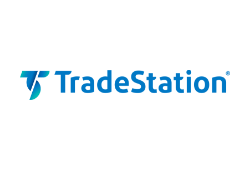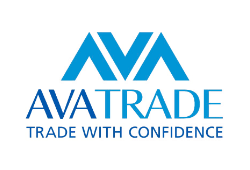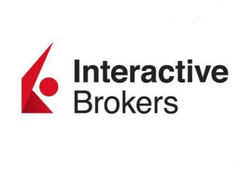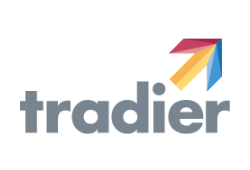Best Paper Trading Platforms
Paper trading platforms are essentially simulated stock markets that allow users to practice buying and selling stocks without risking any real money. There is a great variety of these available, so it’s important to do some research to find one that best suits your needs.
Best Paper Trading Platforms in February 2026
TradeStation
- Options and futures trading
- Real-time trading
- Educational materials
AvaTrade
- Over 1,000 trading instruments
- Cryptocurrency paper trading
- Holds multiple trading licenses
Webull
- iOS, Android, Mac, and Windows app
- Offers brokerage and IRA accounts
- Great customer service
Interactive Brokers
- Intuitive paper trading interface
- A wide range of trading tools
- Trusted brokerage company
Capital.com
- Regulated by FCA, CySEC, ASIC
- iOS and Android apps
- Trade Bitcoin, Ripple, Ethereum, and Litecoin
Forex.com
- Over 80 currency pairs and metals
- Easy to use
- FOREX.com and MT4 platforms
Tradier
- Several integrated platforms
- Rich library of blogs and guides
- Phone and email support
Thinkorswim
- User-friendly mobile app
- Advanced trading tools
- Phone and in-app chat support
Top 5 Paper Trading Platforms - Our Picks for 2026:
TradeStation - Best for experienced brokers
WeBull - Best desktop app
Interactive Brokers - Best for paper options trading
AvaTrade - The most secure trading platform
Capital.com - Best customer support
How We Evaluated Paper Trading Platforms
Investors who are new to the stock market often find it helpful to practice trading before investing money.
Paper trading is a type of simulation that allows investors to try out strategies without putting any real money at risk.
There are many paper trading platforms available, so it can be tough to choose the one that best fits your needs.
Here are some things to look for:
Ease of use: Good platforms are those that are easy to use and understand. You should be able to get started quickly without feeling overwhelmed.
Real-time data: Almost all platforms we reviewed offer real-time market data so you can get a feel for how the market is moving.
Educational resources: In most cases, paper traders are beginners, so it’s always good to find a platform that offers a set of educational resources, such as guides and tutorials. Blogs, articles, or even online webinars will help you learn about the stock market, trading forex pairs, crypto trading, and more.
Cost: While the majority of the paper trading platforms are free, others charge a monthly fee. It’s best to decide what you’re willing to pay and choose accordingly.
Mobile app: Select the platform that has a mobile app you’re comfortable using so you can trade on the go.
Support: Choose a platform that offers customer support in case you have any questions or encounter any issues.
Copy trade feature: Some paper trading platforms allow you to copy the trades of successful investors. This can be a helpful way to learn from more experienced traders.
The right stock market simulator for you will depend on your individual needs and preferences. Take some time to try out a few options to see which one works best for you.
What Is Paper Trading?
Paper trading is the process of simulating trading activities in the stock market without actually using real money.
This is a great way to learn how the stock market works and test out different investment strategies without jeopardizing your hard-earned money.
There are a few ways in which you can paper trade options. One popular method is to use a stock market simulator - a program that allows you to place pretend trades in real time, using data from the markets.
This can be a great way to get a feel for how the stock market works without putting any money at risk.
Another popular paper trading method is to use fake money and track your hypothetical gains and losses.
This can be a convenient way to test out investment strategies and to how you would do if you were investing real money.
Pros and Cons of Paper Trading
Paper trading may provide many advantages for experienced and novice traders alike, but certain limitations may become apparent when users begin to trade in funded accounts.
Advantages of Paper Trading
As already mentioned, one of the main advantages of paper trading is that it lets traders test out their investment strategies without endangering their finances. As a result, they can become familiar with stock market principles and investment strategies.
Another advantage of paper trading is that it can help traders develop their skills and confidence. Through paper trading, users can learn how to place trades, manage their positions, and execute their investment strategies. This can pave the way for their success in the real world of trading.
Lastly, paper trading can help traders avoid some of the emotional pitfalls of trading, such as fear and greed. When paper trading, traders may be less likely to make emotionally-driven decisions that can lead to losses.
Disadvantages of Paper Trading
One potential disadvantage of paper trading is that it might give traders a false sense of security. Since no actual money is involved, some traders may take more risks than they would if they were investing for real.
This can lead to problems when trading with money, as they may not be prepared for the potential losses.
Another potential disadvantage of paper trading is becoming too comfortable with losing fake money. If a trader trades for too long and becomes used to losing, they may be more likely to take unnecessary risks when they begin trading with real money.
Lastly, when you use a practice app, it may not accurately reflect the real world of trading. Specifically, the trader may not experience the same emotions that can occur when real money is at risk.
When to Try It
Paper trading can provide much-needed practice for novice traders. It may help newcomers who don’t have sufficient market expertise acquire essential trading knowledge.
Also, paper trading may allow experienced traders to try out new strategies without risking any money.
Traders with prior knowledge might find practice trading platforms useful when evaluating new options strategies, exploring a different underlying market, or seeing how an existing options trading strategy performs in various market circumstances.









